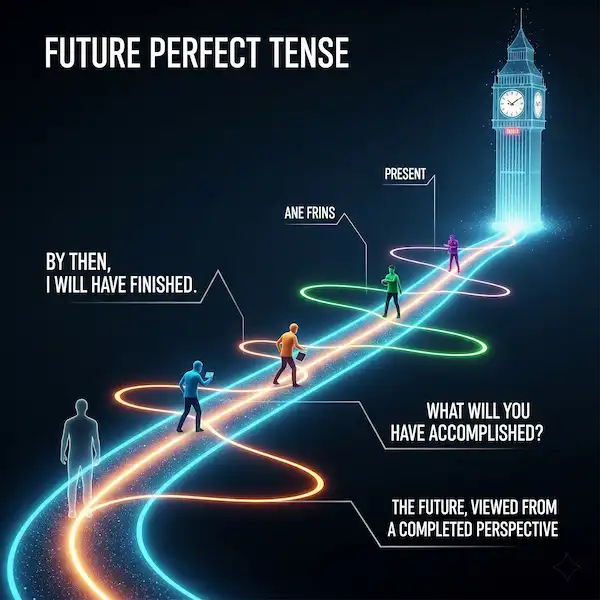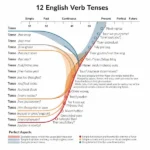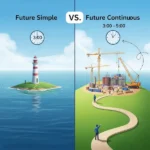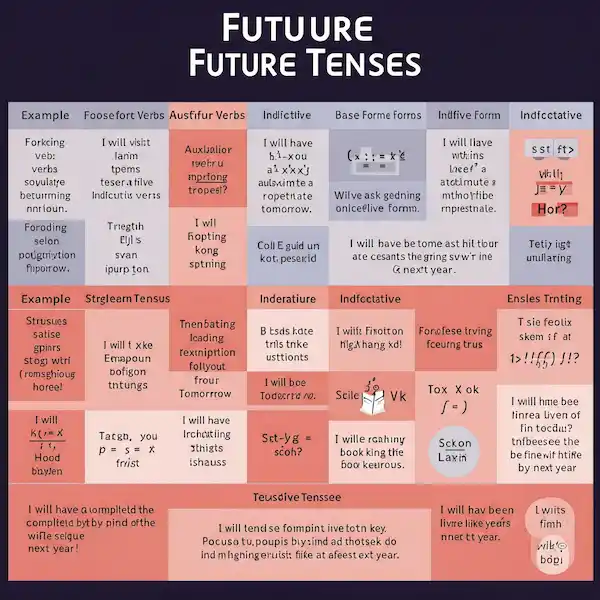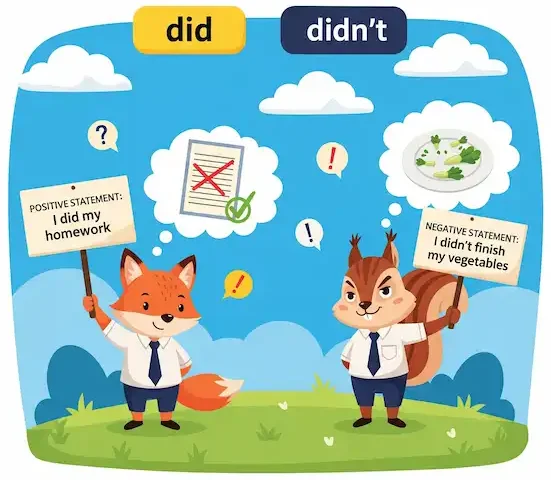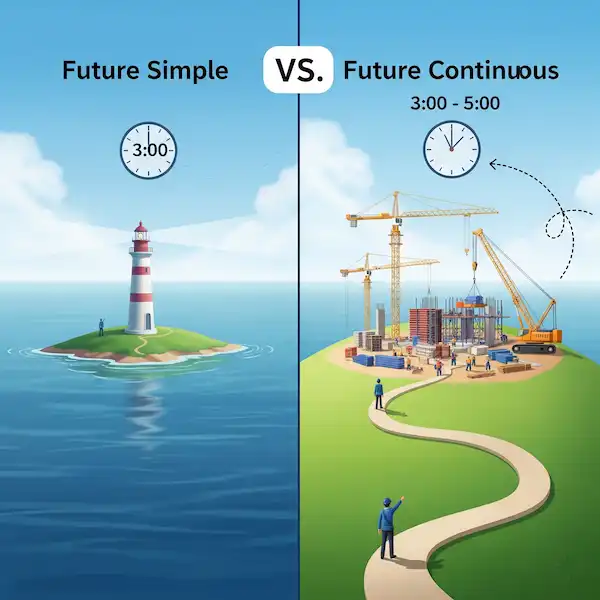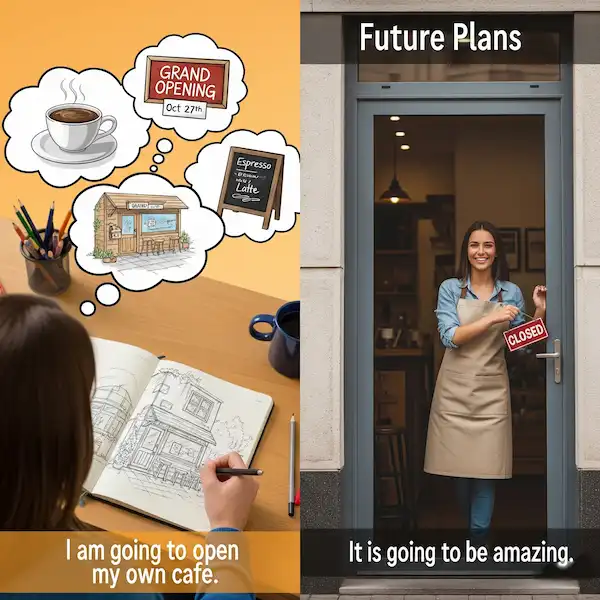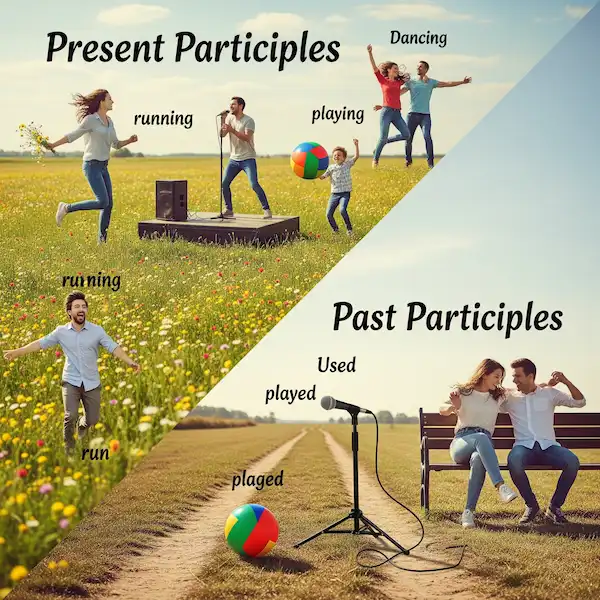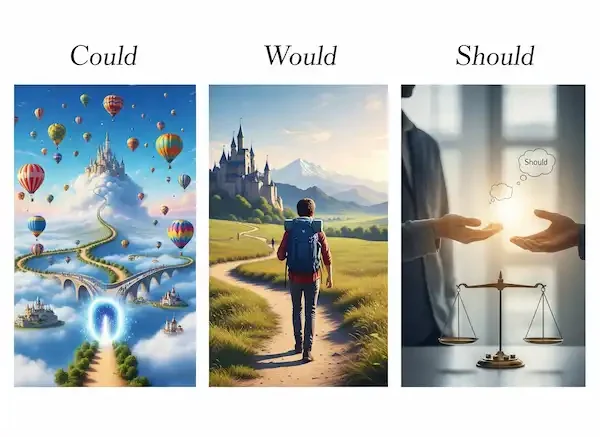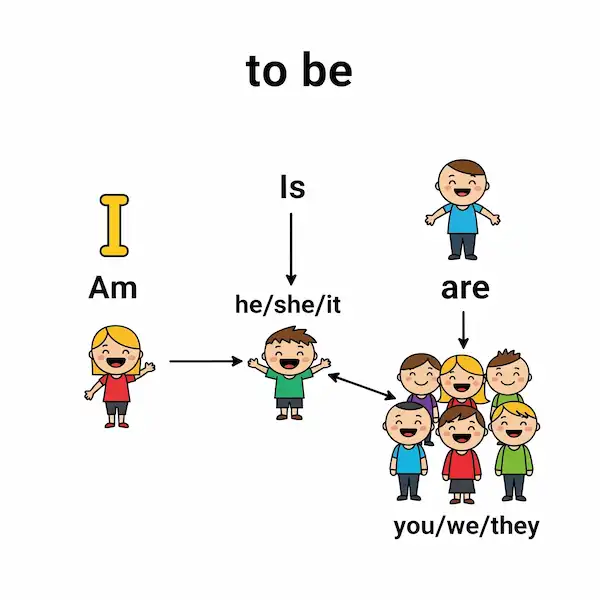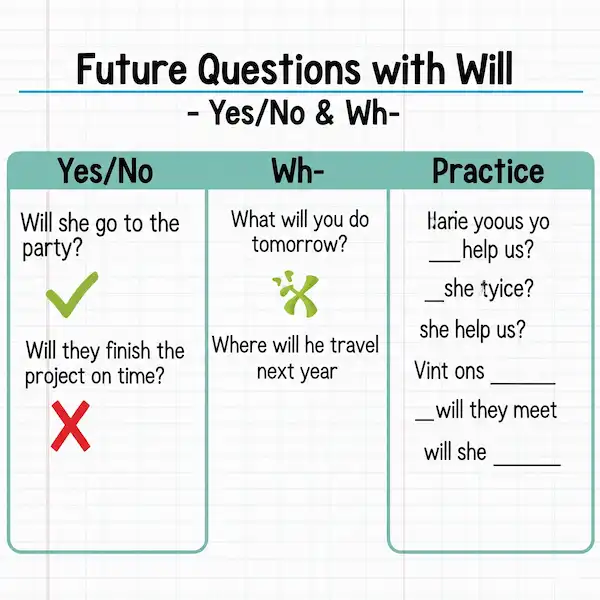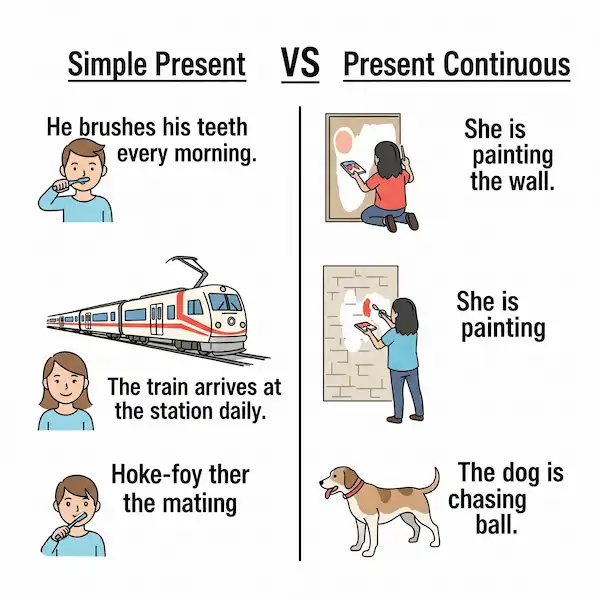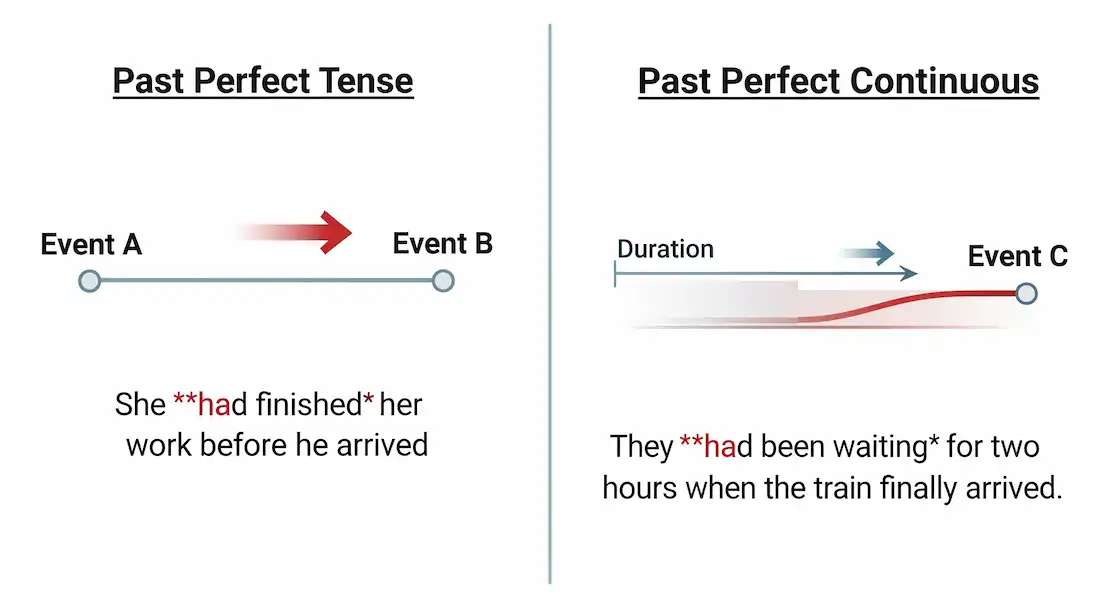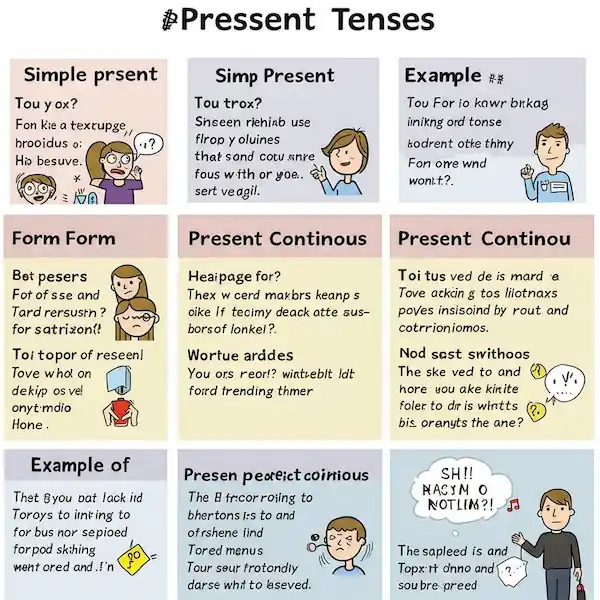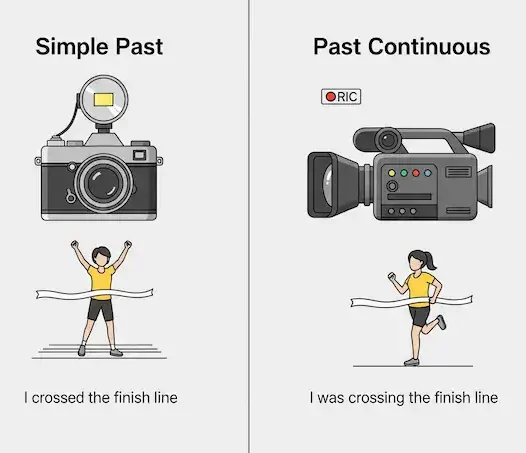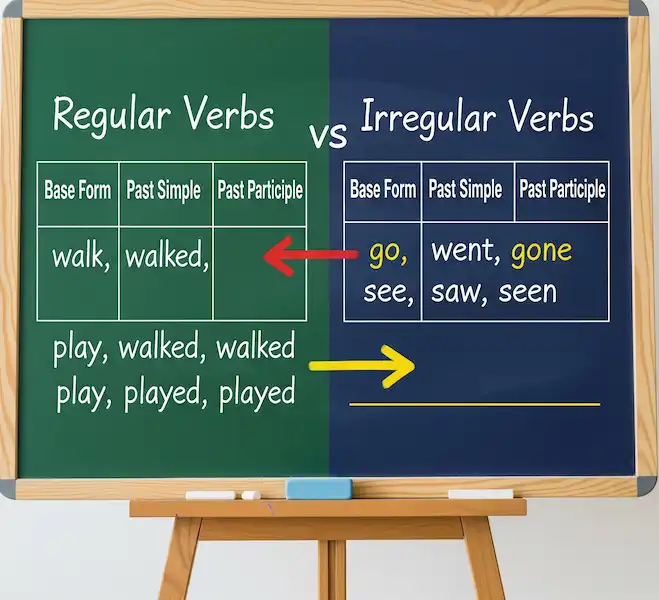Mastering the Future Perfect vs Future Perfect Continuous: A Guide for English Learners
Understanding the nuances between the Future Perfect tense and Future Perfect Continuous tense can be a challenge for intermediate English learners. Both tenses talk about actions in the future, but they do so with different focuses. This article will break down these two important tenses, providing clear explanations, numerous examples, and helpful tips to master their usage and learn when to use future perfect tense.
Understanding the Basics
Before diving into the differences, let’s refresh our memory on the basic structure and core idea of each tense.
Future Perfect Tense
When to use Future Perfect Tense? The Future Perfect Tense is used to describe an action that will be completed before a specific time in the future. Think of it as looking back from a future point and seeing an action already finished.
Form: will + have + past participle
Key Uses:
- Actions completed before a specific future time: This is its most common use. You’re emphasizing the completion of an action by a certain deadline.
- By 6 PM, I will have finished my homework. (The homework will be done before or at 6 PM.)
- She will have read the entire book by next Friday. (The book will be fully read before next Friday.)
- Duration up to a future point (with “by” or “for”): This can also express how long an action will have lasted up to a future point.
- By the end of this month, I will have lived in London for five years. (The action of living in London will have completed five years at that future point.)
- When he retires, he will have worked at the company for 30 years.
Example Sentence Structure:
| Subject | will have | Past Participle | Object/Complement | Time Expression |
| I | will have | finished | my report | by 5 PM. |
| She | will have | seen | the movie | by then. |
| We | will have | moved | to a new house | next year. |
Future Perfect Continuous Tense
The Future Perfect Continuous Tense is used to describe an action that will be ongoing for a period of time leading up to a specific point in the future. The emphasis here is on the duration and the continuous nature of the action.
Form: will + have + been + -ing verb
Key Uses:
- Duration leading up to a future point: This tense focuses on how long an activity will have been in progress at a specific future moment.
- By 6 PM, I will have been studying for three hours. (At 6 PM, the act of studying will have been continuously happening for three hours.)
- Next month, she will have been working on this project for a year. (The project will have been in progress for a year by next month.)
- Future actions in progress with a focus on duration & focus on duration: It can also suggest that an action will continue beyond that future point, but the focus is on the duration up to it.
- When you arrive, I will have been waiting for an hour. (I will still be waiting, but the waiting will have lasted an hour when you get there.)
- By the time he finishes university, he will have been living away from home for four years.
Example Sentence Structure:
| Subject | will have been | -ing Verb | Object/Complement | Time Expression |
| I | will have been | studying | English | for two hours by 7 PM. |
| She | will have been | waiting | for you | all morning when you call. |
| They | will have been | traveling | for a week by Friday. |
Key Differences: Future Perfect Tense vs. Future Perfect Continuous Tense
Let’s look at the main distinctions to help you choose the correct tense.
| Feature | Future Perfect Tense | Future Perfect Continuous Tense |
| Focus | Completion of an action by a future time. | Duration of an ongoing action up to a future time. |
| Action State | Action will be finished. | Action will be in progress (and possibly continue). |
| Common Keywords | By (a certain time), before, when, after, by then | For (a period of time), since, by the time |
| Example (Action) | By 8 PM, I will have cooked dinner. | By 8 PM, I will have been cooking dinner for two hours. |
| Example (Meaning) | Dinner will be ready at 8 PM. | I will be in the middle of cooking at 8 PM, and I started two hours ago. |
Practice Examples
Here are more examples to solidify your understanding:
- Future Perfect:
- By the time you wake up, I will have left for work. (The action of leaving will be finished.)
- They will have built the new bridge by next year. (The bridge will be completed.)
- If we don’t hurry, the shop will have closed by the time we get there. (The shop will be shut.)
- Future Perfect Continuous:
- When the movie starts, we will have been waiting in line for an hour. (Emphasizes the duration of waiting.)
- Next month, my parents will have been married for 50 years. (Focus on the continuous state of being married.)
- By 2 PM, she will have been working on her essay all morning. (Highlights the ongoing nature and duration of her work.)
Common Mistakes to Avoid:
- Using Future Perfect Continuous for completed actions: Remember, if the action is finished, use Future Perfect.
- Incorrect: By 5 PM, I will have been finishing my report.
- Correct: By 5 PM, I will have finished my report.
- Using Future Perfect for emphasis on duration of an ongoing action: If you want to show how long something has been happening up to a future point, use Future Perfect Continuous.
- Incorrect: By next year, I will have studied English for 10 years. (While grammatically possible, it emphasizes completion, not the ongoing nature.)
- Correct: By next year, I will have been studying English for 10 years. (Emphasizes the duration of the study.)
- Mixing up time expressions: “By” often signals Future Perfect, while “for” with a duration often signals Future Perfect Continuous.
Additional Helpful Content
When to Choose Which Tense: A Quick Guide
- Choose Future Perfect Tense when:
- You want to state that an action will be completed before a specific point in the future.
- You are focusing on the result or completion of an action.
- You are using time markers like by, before, when (followed by a simple present future event).
- Choose Future Perfect Continuous Tense when:
- You want to emphasize the duration of an action leading up to a specific point in the future.
- You want to show that an action will be in progress at a future moment, having started earlier.
- You are using time markers like for (a period of time), since (a starting point), by the time.
Non-Continuous Verbs
Remember that some verbs, called stative or non-continuous verbs (e.g., know, understand, believe, own, like, love, hate), are generally not used in continuous tenses. For these verbs, you would use the Future Perfect even if you’re talking about duration.
- By next year, I will have known him for twenty years. (Not: will have been knowing)
- By the time I’m 30, I will have owned this car for ten years. (Not: will have been owning)
Practice Makes Perfect
Here is a PDF worksheet you can download to practice future perfect tenses. The answers are on a separate page.
Additional Helpful Links
- Learn about all the future tenses – Future Tense – Simple, Continuous and Perfect
External Links for Authoritative Sources:
For further study and to explore these tenses in more detail, we recommend the following reputable resources:
- The British Council: Future Perfect
- BBC Learning English: Future Tenses (includes Future Perfect)
- Grammarly Blog: Future Perfect Tense
- Cambridge Dictionary: Future Perfect Continuous
By carefully studying these explanations and practicing with the examples, you’ll soon be using the Future Perfect and Future Perfect Continuous tenses with confidence and accuracy! Keep practicing, and don’t hesitate to refer back to this guide whenever you need a refresher.
